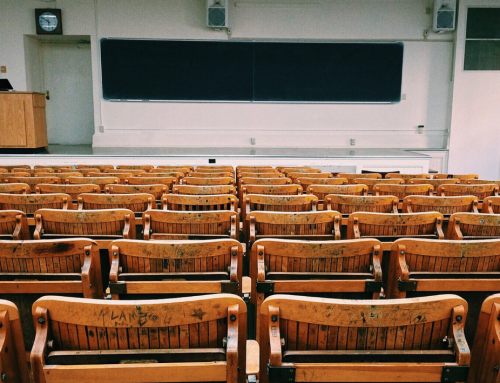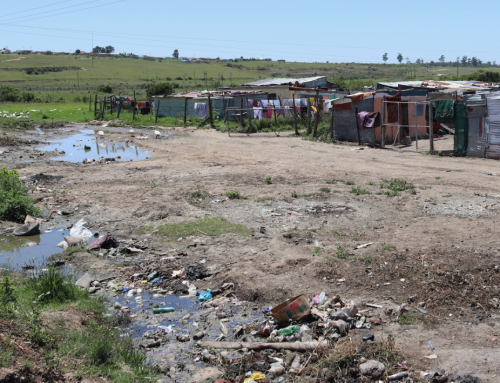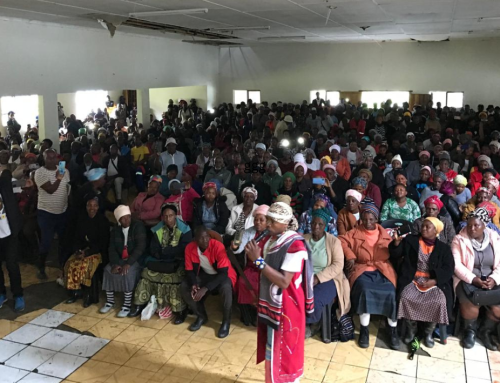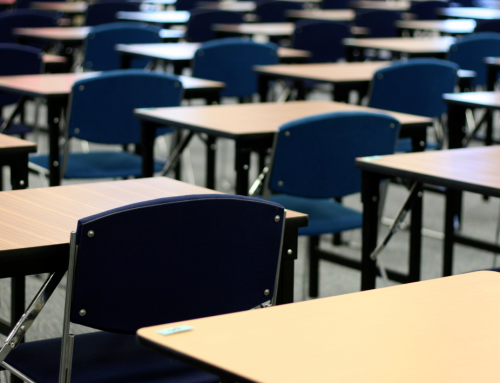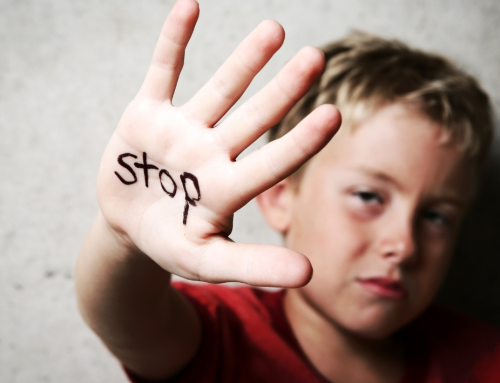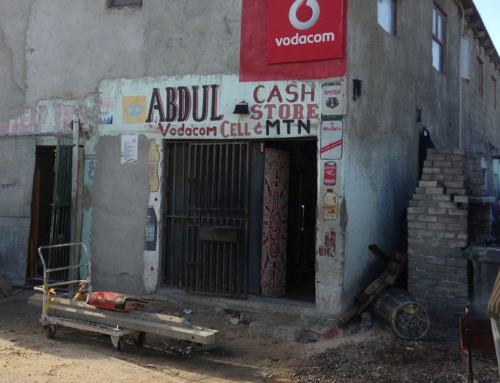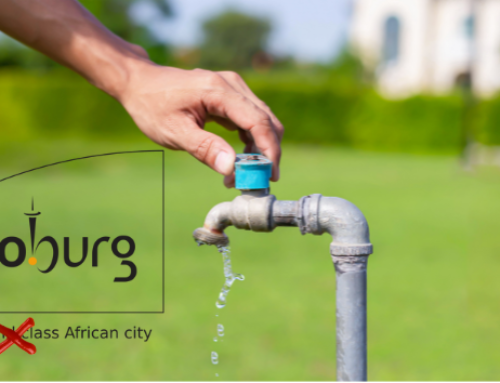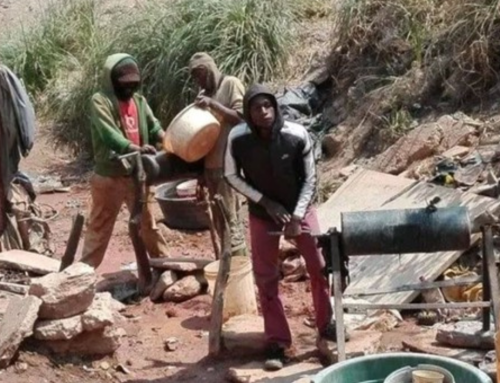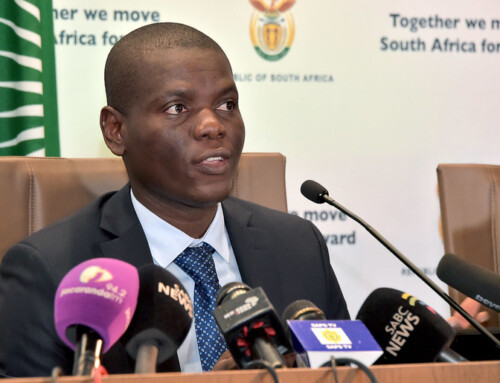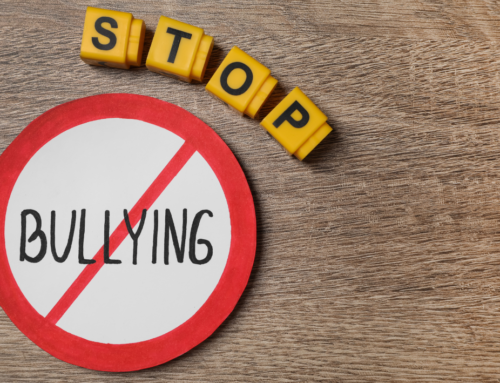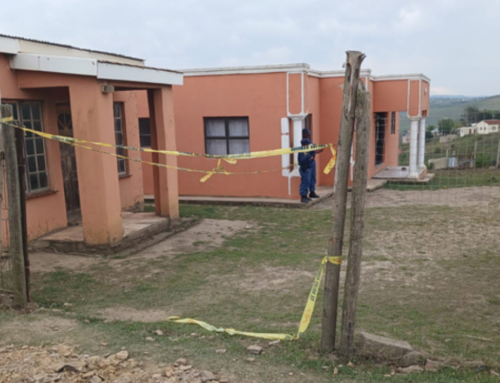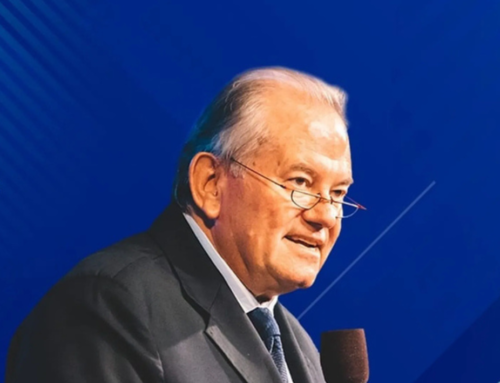

Check against delivery
UDM National Leadership
Provincial Leaderships of the UDM from across the country
Public Representatives of the Party
Members and supporters of the UDM
Your excellencies
Esteemed guests of the Party
Ladies and gentlemen
1. Welcome
Ladies and Gentlemen from the ranks of the UDM, our guests, as well as all of those who are listening from afar: WELCOME.
The 2024 Elections will be among the most important occasions in South Africa’s history. It will hopefully be the moment when this country rids itself of the one-party dominance of the ANC and the corruption it has tolerated for the last thirty years.
It will be the moment when the people of South Africa will regain their number one position on the National agenda.
2. Who is the UDM?
The UDM is a social democratic party with a strong moral sense, in both the social and economic areas.
At our core, we advocate for a government that encourages our people to become wealth creators in their own right. Our leadership is committed to decency, integrity, and respect for you and all of South Africa’s democratic institutions.
The UDM’s guiding values are inclusiveness, consultation and accountability.
These three simple principles distinguish our approach from many other political parties and widely from the ruling party, which has completely forgotten these fundamental notions required of a sound democracy.
3. South Africa at a glance
Thirty years into our democracy and our beautiful South Africa is in crisis. There is a clear disconnect between our people and their government.
The main causes of this disconnect are unacceptable levels of corruption; a poor economy and staggering joblessness; increasing crime and dangerous lawlessness; crumbling infrastructure and unacceptable loadshedding, as well as the illegal influx of people from all-over seeking refuge and resources from the state.
As a result, our people take to the streets, and most of the time, government does not even have the courtesy to listen to them. In the rare instances where they do, they are lied to with a barrage of promises that never become a reality.
These are just some of the prime issues of the moment and there are many more burning issues, international relations, traditional leaders and rural revitalisation, education, healthcare, women, youth and more.
For the UDM’s views on these and still other topics, please review our full 2024 Election Manifesto (click here)
4. Corruption
Let’s talk for a moment about corruption. Have you ever heard an ANC leader standing at a podium lamenting about corruption? Of course you have — so have I — whilst all the time they and their colleagues are drowning in the graft.
Loyalty is rewarded by the ANC with protection against investigation and prosecution as the culprits who have looted state resources hide behind struggle credentials.
There is no political will to take the guilty to a court of law and it is for this reason that the Zondo Commission’s report is gathering dust in Parliament.
The reason is simple and unsurprising: The ANC is fingered in the Report. How can those that the report identified as involved in corruption be trusted to find solutions to their own immoral and illegal activities?
We all know names such as Bosasa, Chancellor House and the Guptas. But don’t let anyone pull the wool over your eyes — the ANC has for decades had its own hands in the proverbial cookie jar in order to sustain itself in government, so as to continue to avail itself of government funds.
No one can really wonder any more who the real State Capturers are: It is all those who run the ANC.
Even President Ramaphosa declined to release the performance reports of his Cabinet, citing that he is scared these reports will embarrass government and his party. Yes, they will — and if you had no other reason to refuse to vote for the ANC again, this will convince you.
The President even stated that he was “willing to fall on the sword” rather than reveal the names of those who abused public funds. Does that make him a hero or just another sleazy enabler for all the thieves in his party?
The government invested the workers’ UIF contributions with the PIC. These funds belonged to ex mineworkers, civil servants, retired military personnel and others. Now it is gone and disappeared in the scandals involving these funds.
In the same vein ex-government employees are sent from pillar to post when they query their pension calculations. President Ramaphosa had in the beginning of 2023 given the instruction that Finance Minister Enoch Godongwana should set up a team to investigate the pensions for civil servants from the SATBVC states. During 2023, the UDM’s representatives did everything within our power to facilitate the progress of the President’s order, but we ran into a brick wall with Minister Godongwana who has defied the President’s instruction.
NSFAS and the SETAs are other examples of government projects, managed by the ANC, that have been hijacked by their greedy and corrupt leaders. It makes my blood boil to think of how much has been stolen from ordinary South Africans by a political party that is in the business of stealing rather than governing.
The list of similar thefts is nearly endless. Why? Because MANY OF YOU blindly vote — out of habit, out of guilt — to return the ANC to positions of power where they continue to feel that gives them a license to steal.
Sadly, the billions of Rands, that were supposed to address the backlogs and imbalances of the past, build infrastructure and create jobs have been syphoned off, through corruption. These injustices took place, and the culprits are walking free in the streets.
The cancer of corruption has even engulfed our law enforcement agencies where for instance our people are scared to stop at roadblocks for fear that the police officers will be up to no good. THIS HAS TO END. Our law enforcement agencies need to be cleaned up AS A MATTER OF URGENCY. It is affecting perceptions of local safety and security, and it is also tainting South Africa as an investment destination.
Some of these things we witness show a total lack of patriotism on the part of these corrupt sharks. It would be advisable, for example, to teach our children at school exactly how the state works and how taxes should be used so they know, as they grow, what corruption does.
In the final analysis, corruption destroys our freedom.
You don’t have to be a rocket scientist to understand the living conditions of some of our people. Go to the townships and our rural areas and towns to see where people must jump over puddles of sewerage, yet the spending of trillions of rands has been announced over the years.
It is worse in the former homelands, the worst performing province is the Eastern Cape, the birthplace of Oliver Tambo, Nelson Mandela, Govan Mbeki and Chris Hani. The roads are falling apart, aside from the N2 which Sanral is working on. The taps have run dry that were set up in the time of Ministers Ronnie Kasrils and Kader Asmal.
There have been overwhelming calls for me and the UDM to come and fix the Eastern Cape and it isn’t, as in the past, where I can use unorthodox methods to rise to power. The people must vote in great numbers for the UDM.
The UDM will reopen the factories and industries closed down by the ANC as well as resuscitate the agricultural projects and the maintenance units that used to maintain the roads, without delay, in order to generate many jobs. The people of the region will be economically empowered, to combat this neocolonialism of a special kind, where Pakistanis dominate as shop owners. We will restore the Eastern Cape to the glory of yesteryear where the people of the province own the province.
To ensure clean governance, a UDM government will implement, amongst others:
• Zero-tolerance for corruption and abuse of power.
• Effective procedures and special courts to be established to investigate and prosecute those in the public and private sector involved in corruption.
• Independent anti-corruption task teams to be established in each province to determine the level of corruption and to immediately introduce recovery steps.
• An end to the usurping of the powers of accounting officers by political leaders that issues political directives that are always laced with corruption.
• The development of systems to reward and protect civil servants who are whistle-blowers in exposing corruption.
• An end to schemes such as Chancellor House and VBS looting state resources and undeclared levies where businesses are expected to bribe decision-makers in order to get government business. In other words, a UDM government will not allow an investment company to belong to a political party and do business with the state.
• In the recent past we have seen private companies colluding in price-fixing and banks meddling with the currency. This must stop.
• The fight against corruption will necessitate investment in training of the civil service and police in IT-related matters as well as in closer cooperation amongst the relevant institutions.
• Establish task teams to clear house where government pensions and UIF claims have been compromised.
• Depoliticise the civil service and law enforcement agencies so that appointments are only made on merit.
• Traditional leaders and civil society must play a meaningful role in monitoring government projects to curb wasteful expenditure.
5. Poor economy
Global economies are confronted with a range of geopolitical challenges and conflicts. They must deal with the effects of high energy and fuel prices, high inflation and disruptions in trade. All have had a negative impact on the South African economy.
These have caused a cost-of-living crisis globally as well as in South Africa, with devastating effects on the poor.
Yet this does not discount, or excuse thirty years of economic policy uncertainty. It does not explain the gross mismanagement of the South African economy perpetrated by ANC governments.
Under a succession of incompetent ANC governments, South Africa’s economic growth is less than 1% per annum and the unemployment rate has reached crises levels at northwards of 30%.
In the last thirty years, ANC governments have failed to invest in the majority of our citizens in order to generate more industrialists and wealth creators.
The erstwhile business giants have left our shores with their cash, delisted and very little was done to fill that gap. The ANC’s removal of incentives and the closure of the so-called border-industries was a fatal mistake and negatively affected employment.
Even now, when our youth are trained via the SETA system, they are not absorbed in the labour market.
A UDM government will, amongst others, follow a model of manageable public debt and budget deficit, that has fiscal discipline as a basic tenant to ensure that government borrowing stays within reason, allowing for some flexibility to invest in infrastructure development to address imbalances and inequality whilst creating jobs.
We will also establish sector banks, for the youth and marginalised communities to access capital to venture into industries such as textiles, agribusiness, steel, farming and food production, so that they might become wealth creators in their own right and create jobs.
We need to have a distinct national fund to assist entrepreneurs, artisans and artists to develop the latent talent in South Africa. Skills of this nature have assisted the Afrikaner when they ascended to power, and the state took a leading role in their development. The UDM will initiate and support programmes that provide professional development, financial security, and greater visibility for artists and background artists.
We have been promised industrialisation for years by the Department of Trade and Industry with no industrialists to show after billions have been invested in this endeavour. It is not surprising that this has been another lie – we do not have an industrial policy to guide this activity.
An Industrial Policy should be predicated on South Africa’s comparative advantage –endowed as it is with resources (in the form of minerals, vast amounts of agricultural land and two oceans). This advantage should be exploited for long-term competitiveness and sustainable growth. Optimal exploration and utilisation of resources (both natural and human) to enhance the economy’s ability to produce a particular good or service at a lower cost than its trading partners should inform the industrial policy.
Creating Infrastructure for Industrial Parks and Special Economic Zones should form the Pillars of the Sector Master Plans, which have proved successful in Asia.
The constant chopping and changing in our economic policies, with the Tripartite Alliance Partners’ vetoing powers, erodes investor confidence and drives out entrepreneurship.
The history of South Africa should be uppermost in our minds when we talk about economy, land and property. Militarily speaking, in the past conflict between black and white, there was no winner and South Africans have always turned to the negotiating table to resolve our differences. The Codesa process, however, never finalised the matter of land and property, and we have never found consensus on the economic empowerment of the majority of our citizens. In addition, the ugly heads of tribalism and racism are rearing their heads again.
The land tenure system, as well as the Ingonyama Trust in KwaZulu-Natal and the cut-off date for any other land claims must be addressed. The UDM therefore proposes a national dialogue, on these issues and others pertaining to land, immediately after the elections. These contentious issues will never be solved by one political party alone. We need to find a suitable way to resolve this matter around a table instead of at the end of a rifle.
6. Joblessness
South Africa has one of the most unequal societies in the world and it also has one of the highest unemployment rates.
The primary objective of government must be to stem the tide of rising unemployment with its attending adverse consequences for social and economic stability.
The UDM’s response to the challenge of unemployment includes:
• Identifying markets for small firms through promoting domestic and foreign connections to adequately address both the supply and demand side of the economy and developing capacity in the areas of improved business and entrepreneurial skills, as well as
• Identifying loan and capital sources, as well as facilitating loans and investments in community businesses.
• Having closer cooperation between government, business and unions, where the role of each is clearly identified with a view to specifically create job schemes.
• Re-establishing the maintenance units of old to maintain for instance government buildings, schools, roads, fencing of grazing land and crop fields, etc.
• Establishing waste management schemes to clean up South Africa, which has become the dirtiest country on the continent, and support SMMEs that want to venture into this field.
• Establishing soil erosion combatting teams to tackle dongas, river and other erosion after heavy rains.
• As cold weather is creeping up on us, because of climate change, planting new forests in communities for windbreaks and for firewood, would be advisable.
7. Poor infrastructure
The ANC inherited a functional infrastructure. What did it do? It neither maintained nor expanded what it was given, to the loss of a growing nation.
From the UDM’s perspective, infrastructure development is a critical factor in promoting economic growth. It also improves the quality of life because of its positive impact on individuals, households, and rural communities.
The new government will have to hit the ground running on fixing roads and bridges in rural South Africa. Because of lack of capacity of in some provinces, the responsibility for provincial roads must be handed over the SANRAL.
To avoid the past scenarios where presidents favour the areas where they come from, the UDM would publish a national infrastructure development map that articulates the role of government, the private sector and communities with time frames, as well as follow-up by the UDM’s proposed maintenance units.
8. Loadshedding
Nowhere is the failure to maintain the infrastructure that was given to the ANC more evident than in our energy infrastructure.
For almost fifteen years now, South Africa has been experiencing debilitating power failures due to the ANC government’s refusal or inability to invest in new power stations because of corruption. The corrupt relationship between Chancellor House and Hitachi is well documented, where the money was supposed to build Medupi and Kusile.
This has led to the point where loadshedding is accepted as a daily part of our lives. Compared to every other developing country in the world, this is a disgrace.
Under a UDM government, amongst others,
• Given the challenge that South Africa has lost much of its expertise, we will propose a public/private partnership model for the privatisation of Eskom where the government holds a 51% stake in the entity for the people of South Africa.
• With the host of bilateral agreements South Africa has entered into, we will ask assistance from other countries, with strong capabilities, to give us an independent diagnosis of our power failures. The ANC has been lying to the people of South Africa about the causes of loadshedding.
• We will ask the UNFCCC Conference of Parties to give South Africa a reprieve in terms of the deadlines for migrating from fossil fuels to renewable energy and an opportunity to develop our energy policies based on the fact that we lag behind in our socio-economic development goals, as caused by the separate development policies of the past governments.
9. Crime and lawlessness
The ugly phenomenon of murder, violent crime, political assassinations and drugs sold in broad daylight is cause for concern.
South Africa today is the murder capital of the world and gender-based violence is a scourge eating at the fabric of our society.
What does this say about a government that cannot keep its citizens safe? As a result, local and international investors seek other destinations for their money and tourists go elsewhere for their vacations.
There is a sense of lack of discipline in the country and general lawlessness. People take over others’ properties, steal livestock, break into homes, mug and rob on the street, brandish weapons, and the list could go on.
The law enforcement agencies need to take back the streets. It is as if there is a sensation when criminals are arrested, but that’s where the stories will end. The police must make a good case for the NPA and the NPA must make sure that they prosecute, the courts must stop postponing cases and mete out the right justice. We hold no brief for the likes of Timothy Omotoso, Vincent Smith and Ace Magashule whose cases have been dragging for years, where the state seems to be perpetually unprepared.
Our porous borders mean that criminal elements enter the country, and we are facing the scourge of cash-in-transit heists, drug distribution, violent robberies, counterfeiting, rampant prostitution and human trafficking. The criminal justice system is unable to handle these problems, which makes our people feel justified in their actions against foreign nationals – legal and illegal.
A UDM government will, amongst other responses:
• Enhance coordination between the ministries of justice, police, correctional services, defence and national intelligence.
• Dedicate more resources (staff, training and equipment) to the law enforcement agencies to combat crime and the implementation of the existing and new GBVF legislation.
• Invest more resources in crime intelligence so that the police act from an informed position.
• Morale of law enforcement services need to be boosted by means of the revision of training, promotion policies and salary packs.
• Ask the SADC countries to have an immediate leadership summit to discuss the issue of closer cooperation regarding cross-border crimes such as hijacking, cash-in-transit-heists, human trafficking, the use of military grade guns in crime, zama-zamas, the environment, etc.
10. The environment
What sets the UDM apart from our opponents is our focus on the environment.
South Africa is a signatory to several international conventions on biodiversity, sustainable development, climate change, etc. Then we have myriad legislation to consider. What is the connection between these documents? In addition, there are tensions between hunters and preservationists, those who favour culling and those who don’t. Communities who live next to parks feel disenfranchised. The UDM would organise a national indaba on the environment where all stakeholders may gather under one roof to thresh out these issues.
Our manifesto does, however, focus on climate change, waste management, diversity and conservation as well as the sustainable harvesting debate.
11. Is there hope?
The political pundits predict that there will be no outright winner on the 29th of May and that we will likely have a coalition government, which will bring an end to one-party dominance.
This should bring South Africans a sense of hope that it would be possible to rebuild South Africa.
The UDM would follow the Government of National Unity model, that it would be possible to rebuild South Africa together and in a spirit of cooperation.
12. Message to the UDM
To the UDM members and supporters, as you are going out to campaign over the next few weeks, voters might ask you why they should vote for the UDM.
In main, the UDM has been batting on the wicket of the ethics of good- governance and anti-corruption long before it became buzzwords. We have been open and consistent these past 26 years and will do so in the future.
The challenge facing the South African voter is however simple. When you are standing in the voting booth, the issue of trust should be foremost in your mind. That will be your opportunity to answer such questions as:
Can we trust the ANC to create jobs, after they failed in the last 30 years?
Can we trust the ANC to be custodians of the judiciary, when they attack judges?
Can we trust the ANC to fight crime, when their leaders are dodging their day in court?
Can we trust the ANC to fight corruption, when they have been embroiled in one scandal after another?
Can we trust the ANC to deliver quality education, when they have consistently failed to do so for 30 years?
Can we trust the ANC to improve health care, when they have presided over empty clinics and dirty hospitals?
The list goes on!
One thing you can do is TRUST THE UDM.
I thank you.



